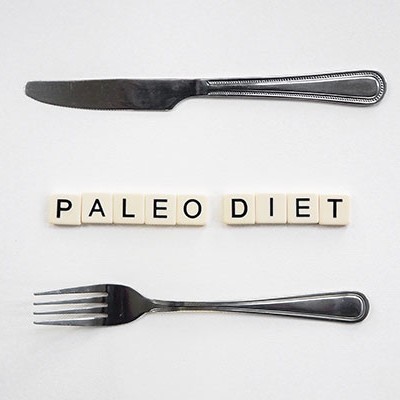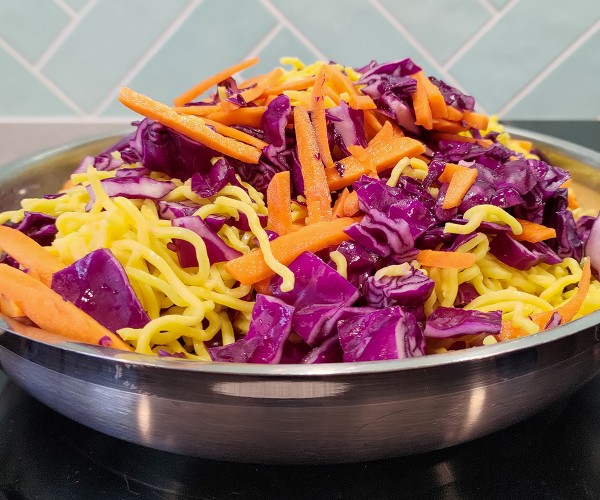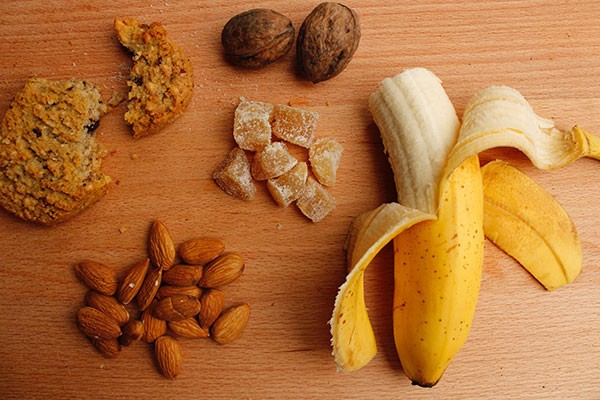
Is the Paleo Diet Worth Following?
Posted by Dayne Hudson
Estimated reading time: 7 minutes

The paleo diet has proven popular with many hardcore dieters. The premise is simple - if we eat as the cavemen did, we'll be healthier long-term.
But there's no hardcore scientific evidence to back up the claims that paleo eating has significant health benefits.
Paleo diet rules are extensive.
One of the issues with the paleo diet food list is that it excludes plenty of nutritious elements that are good for you - like dairy, grains and legumes.
Those who support a paleolithic diet blame agriculture and carbohydrates for the rise in poor health outcomes and obesity, hence recommending they are steered clear of.
A review conducted in 2021 revealed what many of us already knew, that we're moving less, partly linked to the rise in sedentary jobs.
Other studies show we burn 142 calories less at work than we did in the 1960s.
And if you factor that in with a roughly 445 daily calorie increase, we've had since then, we're looking at a 587-calorie surplus.
But there’s an even bigger problem…
With a paleo diet based on the foods eaten by cavemen, you would think the paleo diet was developed based on evidence.
Starch granules have been found on paleo tools from Mozambique, believed to have started at least 105,000 years ago.
Other research has also found starch granules on the surfaces of grinding tools from as far as north-eastern Europe to the central Mediterranean.
What's more, plant food processing, and maybe even the production of flour was across Europe from at least 30,000 years ago.
So, the claims cavemen didn't eat carbohydrates aren't supported by research.
What's more, there are very few accurate records of what they DID eat. There was never research conducted into this in the development of the paleo diet.
However there is research that whole grain and legume consumption can help improve the blood lipid profile, glucose control, reduce the risk of stroke and coronary heart disease, and reduce inflammation.
Then there's the claim from paleo followers that grains cause inflammation, but research shows that 3-4 servings per day of either refined or whole grains reveal no inflammatory effects.

Research conducted by Dan Buettner uncovered what is called "the Blue Zones." These were the places on earth where people lived the longest due to their diets and lifestyles.
Mr Buettner researched what they ate, and carbohydrates were the most consumed macronutrient.
This of course flies in the face of the paleo diet rules and recommendations.
Also, 3 of the 5 blue zones regularly drink coffee, and 4 of the 5 drink alcohol regularly.
And ALL 5 consume grains and legumes.
And last but not least, none of them specifically follow the paleo diet.
The paleo diet is not sustainable for the majority of people today.
Similar to the Paleo diet, the ketogenic/keto diet also demands a very limited amount of carbohydrates:
The aim of the keto diet is to hit ketosis, a metabolic state that occurs when your body burns fat for energy, instead of glucose.
So why low carbohydrates?
Some people still think that because eating carbohydrates causes an insulin spike, it creates instant fat storage.
Scientists refer to this as the "carbohydrate-insulin hypothesis of obesity", which has been debunked multiple times.
But I believe it's a fallacy. You can send 2000 calories worth of energy to your fat cells with an insulin spike, but if you burn 2500 calories a day you can't gain weight.
So spiking insulin isn't the problem here. It’s eating MORE calories than you burn that’s the issue. Simple.
If you understand this, you’ll be ahead of lots of people.
And there’s another problem…

Adherence to a ketogenic diet causes problems for many people. One review concluded:
"Adherence appeared to be particularly problematic for those studies who set out to achieve a very low-carbohydrate diet (<50 g carbohydrate per day), with only one out of the six trials that prescribed a very low carbohydrate diet being able to achieve this target as an average value."
The other issue is the hindrance of performance. Research shows that anaerobic exercises like sprinting or weightlifting are negatively affected by the low levels of carbohydrates eaten on a ketogenic diet.
So, if sprinting is your thing, or weightlifting (as it may be for lots of people reading this) you're putting yourself at a disadvantage.
Do yourself a favour – forget about this diet entirely.
A doctor in America came to market with the cookie diet years ago, one of the biggest fad diets of all time.
You buy his cookies which contain protein and fibre, and that’s what you eat the most at the start of the diet.
Now, I love cookies as much as the next person, but not pretend ones that don’t taste like the real thing.
And I certainly don’t want to eat them at every meal.
There’s nothing magical about them, but they’ll tell you there is.
Do you know what’s better?
EATING your protein and fibre every meal: chicken and greens, fish and salad, eggs and fruit – and then eating REAL cookies when you feel like it.
That’s much more sustainable than eating cookies.
The Apple Cider Vinegar diet advocates taking 1-2 tablespoons (15-30ml) of Apple Cider Vinegar per day mixed with water for weight loss.
The dose should be spread out over a 24-hour period, potentially consuming the diluted dose directly before meals.
So, does it work?
Of course not.
A huge review examined the diet’s weight-loss claims and found nothing of significance to report.
We’re also told the diet is good for our health, but there’s no evidence to back this up, either.
Another fad diet to steer clear of.
I’m not even making this up.
A diet from France, it’s also known as the virtual eating diet.
Followers sit down and PRETEND to eat a meal they would like.
They imagine smelling it, chewing it, and trying to convince themselves they’ve eaten it.
But all they can ACTUALLY eat is a salt and water soup concoction.
So, they miss out on essential nutrients and basically just destroy their health.
But it’s a thing. Somehow.

So, there are some of the worst fad diets of all time. None of them are grounded in scientific truth, just the spreading of misleading weight loss theories that enough people decide to try.
The paleo diet and ketogenic diets are based on the fallacy that carbohydrates make us gain weight, and the cookie diet is an unsustainable unnecessary approach to fat loss. The apple cider vinegar diet is not supported by science, whilst the air diet is downright stupid.
Stick to a high protein diet, with carbs and fat, and enjoy everything in moderation.

Like many, Dayne was once desperate to lose weight and get into shape. But everyone he asked, everything he read, lead to the same place... nowhere.
His journey started there - researching science journals and completing a Sports Nutrition Specialist qualification so he could make weight loss easier.

Posted by Dayne Hudson
Estimated reading time: 7 minutes

Posted by Nicole Frain
Estimated reading time: 6 minutes

Posted by Mason Brezinscak
Estimated reading time: 17 minutes
With over 700 recipes and articles, the Bulk Nutrients Blog has something for everyone! Find a new workout, meet our ambassadors or take a deep dive into our products today.
We're an Australian manufacturer and supplier of high quality sports supplements.
Operating since 2008, Bulk Nutrients has become one of the premier Australian brands to supply nutritional products to top level athletes, competitors and those on a journey to a healthier lifestyle.
One thing that sets Bulk Nutrients apart is that we love to talk to our customers!
Whether you need product advice, help with the website or need a change made to your order... call us on +61 3 6266 4725.
If you prefer email you can email us day or night at info@bulknutrients.com.au
For online chat, hit the 'Chat' button in the bottom right hand corner of your screen and you'll be connected to one of our lovely customer service team.
Or if you'd like to get in touch through our online contact form, that's cool too!
Terms & ConditionsSustainability StrategyPrivacy PolicyPayment InformationSitemap
All prices are in Australian dollars (AUD) and include GST unless otherwise stated.
All content copyright © Bulk Nutrients 2008 - 2024